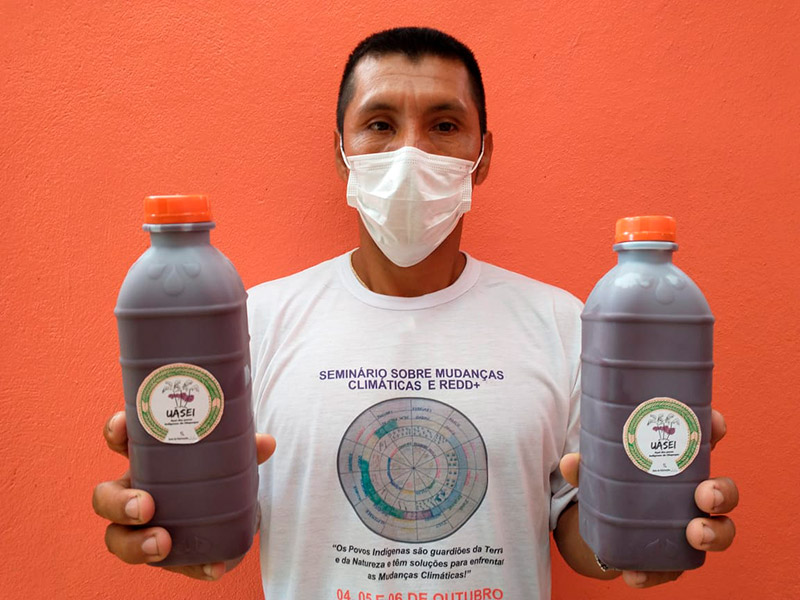Iepé supports the value chains of sociobiodiversity in the territories where it operates. This includes partnerships for income generation, production, management, valorization, and commercialization of products. The goal is to empower and support organizations of traditional communities for the marketing and sale of their products in the market.
In the context of public policies focused on the commercialization of sociobiodiversity products in the state of Amapá, we have contributed to the consolidation of the Chamber of Commercialization of Sociobiodiversity and Agroecology of Amapá (Camap). The group brings together key actors with the aim of implementing the National School Feeding Program (PNAE), according to which educational institutions should directly purchase a portion of their food from local small-scale producers.

Indigenous products fair in Oiapoque and açaí “Uasei”
Strengthening sustainable value chains in the Indigenous Lands of Oiapoque involves actions to structure the value chain of açaí, cassava flour, and their derivatives. It also supports the valorization of the production of indigenous artifacts and arts.
In recent years, Iepé has supported strategic actions for the commercialization of products resulting from traditional indigenous management at the Indigenous Products Fair, which occurs monthly in the municipality of Oiapoque. During the most acute phase of the Covid-19 pandemic, products were sold in baskets through home delivery. Currently, during each edition, approximately 1 ton of indigenous family agriculture products are marketed.
The açaí produced by the Indigenous peoples of Oiapoque, known for its high quality, gained its own brand in 2021.
A blender installed at the Training Center for Indigenous Peoples of Oiapoque, in the Uaçá Indigenous Land, kickstarted “Uasei: The Açaí of the Indigenous Peoples of Oiapoque.”
Biocosmetics from the Association of Araguari Seed Women
Riverside families in Amapá are seeing their lives transformed through the Association of Extractivists Seed Women. Together, they produce artisanal cosmetics that respect and depend on the standing forest. The source of raw materials comes from trees in the Amapá State Forest and the Amapá National Forest, such as andiroba, copaiba, white resin, and tonka bean. These species have been known for generations for their medicinal properties, health benefits, scent, or a combination of all of these.
Apiculture and Meliponiculture Management
The Environmental and Territorial Management Plan of the Indigenous Lands of Parque do Tumucumaque and Rio Paru d’Este emphasizes the importance of local ecology and dialogue with agroecology and natural resource management. Apiculture and meliponiculture are two of the traditional management activities currently developed as part of this effort. The result is the production of honey, an important food for Indigenous peoples, and its commercialization, which generates income for young people and their families.

